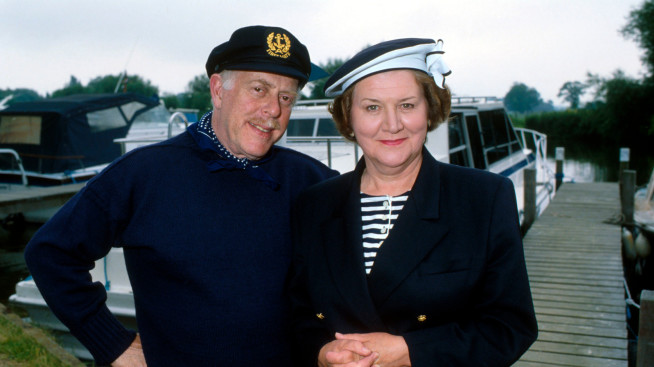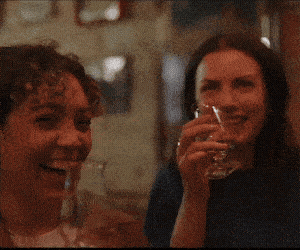
The voice of dissent
It’s rare that an advertising campaign sums up a product accurately and succinctly. They’re usually either too simple or too abstract, too clever or not clever enough.
But Irish Rail knows its strengths. It knows it offers a unique, unrivalled service. And when it says that the train is a grand way to travel, that you’ll be so comfy you won’t want to get off, it’s difficult to argue. Because the train is a grand way to travel. True, it may be occasionally unreliable, a bit urban-centric, and overpriced, but on its day it’s an absolute delight, the most joyful, gentlemanly form of transport available.
I had the pleasure of using Irish Rail last weekend, and a pleasure it was. Undulating hillsides, comfy, commodious seating, it was just like the ads. Except in my case, rather than a dozing middle-aged man, my travel companions were not all that companionable. There was nothing particularly wrong with these people. They, like me, were just out for some natural highs, hopping on-board the feel-good express in search of dopamine, serotonin, or whatever it is they have in those trolleys. But by Christ were they annoying.
In front of me sat a middle-aged woman and her mother. Behind me, a young girl and her father. All were talkative, all in good spirits, and all managed to bring my own spirits down to normal, depressing levels. I’m aware that by using public transport I expose myself to all sorts of peril, that in listening to two hours of incessant shite I probably got off lightly, but still, there’s a point to be made here.
Let’s start with the little girl, the little Irish girl. She was six or seven, going on 67, and spoke in an affected Californian drawl, used phrases like “Oh my God” (later abbreviated to “OMG”) and “This. Is. So. UH-MAZING!” and spent most of the trip conversing with her tablet.
Her father was taciturn, the realisation that he’d spawned a miniature Joan Rivers having long since shocked him into habitual silence. Either that, or he’d lost his mind, and now spends his days chasing butterflies in imaginary meadows far, far away. Me, I wanted to turn around and plead with this girl to watch an episode of Glenroe, to speak in her native tongue, to cherish her childhood because once you’re an adult there’s no turning back. But I left her off, because I’m not a psycho. Besides, I was far too preoccupied with the people in front to get too worked up about Joan and her absent daddy.
Up there we had a nice old woman with a nice, normal Irish accent, and we had her daughter, the lady of the manor. If it was sunshine and beaches, California and Los Angeles behind me, then it was country houses, resplendent gardens, and Dublin Four By Four in the seats in front. Honestly, where are these people got? I haven’t heard an accent like it since Thelma Mansfield made us feel embarrassed to share the air as her. Maybe this woman is of similar stock, maybe she only narrowly missed out on a lucrative wedding with one of the less eligible members of Queen Elizabeth’s flock. But if so, what was she doing on the train alongside a pleb like me?
More to the point, why was her mother speaking in an entirely different voice, a bog Irish one born of this earth? Had her daughter been loaned out to aristocratic neighbours as a child, told not to come back till those vowels were clipped, rough edges hewn off? Or had she simply left the familial home one crisp autumn day, bog accent in tow, and returned that Christmas as the second coming of Thelma herself?
Because that’s what happens isn’t it? We grow up in our own insular environments, talking in whatever way feels comfortable, until we leave for pastures new, to places where thick eejits from the bog with accents to match don’t fit in. And so, we adapt to our surroundings, shedding the shackles of our past, adopting new fashions, new cultures, and new ways of speaking.
In other words, we get notions.
Those people have been around for ages though. Yes, there’s more of them now than ever before, but it’s pointless trying to rid them of those notions, trying to convince a young mucksavage from Roscommon that their lilting tongue is really rather lovely, and that rather than trying to fit in they should be proud of their heritage. All we can do is laugh and point at them when they return home, tell them they’re full of it and have brought shame upon the family with their newly-acquired inflections.
This thing with Irish kids though, this new-fangled American accent that many of them adopt. How does one go about curing that? How do we safeguard an Hiberno-English which randomly ignores the letter h (‘as tick as tieves’) and describes Hollywood blockbusters as ‘fillums’ rather than movies?
First thing we must do is look at the source, the place where they’re learning this dastardly, alien tongue: The Internet. Television. We all grew up with some exposure to global cultures, whether through MTV, Friends, or painfully unrealistic reality television. But it never permeated our lives in the way it does with kids today. Those who aren’t addicted to Fortnite are spending hours online, growing up with YouTube videos, picking up habits and traits from Internet celebrities, all of whom speak in that same neutral, glossy version of the English language, that one bereft of any personality of charm.
In the grand scheme of things this probably isn’t such a big deal. We’re constantly being told that kids are smarter today than ever before, that they’re more well-adjusted, more culturally aware than those of us who spent our formative years rolling down hills and jumping off really high walls, but does it not breaks one’s heart to hear these intelligent little Irish people conversing like the cast of High School Musical, that dull, vacuous, monotone drone replacing their natural tongue?
Maybe in a generation or two there’ll be something of a revival, maybe it’ll be cool to talk like a Kerryman in 2050, a jackeen in 2100. But it feels like we can’t wait to rid ourselves of this embarrassing affliction, this shameful burden which drags us down whenever we step outside the parish. Because that’s what it boils down to: shame. For so long our Irishness was lampooned, our way of speaking mocked and derided, and now, now that we’re becoming popular, now that we’re the cool kid in class, we don’t want to be reminded of our past. We want to fit in, we want to be like all the others, and to hell with the consequences.
An institution you can’t disparage
Popped the question yet? Forked out for a diamond-encrusted trinket worth more than the GDP of a small Pacific island? Or are you going to wait a while longer, keep an eye out in case something better comes along?
Well, if you know what’s good for you, you’ll do the decent thing; you’ll bring her to that fancy restaurant (for an early bird, you’ll need the money), pour as much Prosecco down her throat as she can manage, get down on one knee and pray for all you’re worth that she’s stupid enough to say yes.
Am I the only one who thought it would be the opposite? That avoiding marriage, all the bickering and consternation, upset and upheaval, leads to a happier, more fulfilling existence?
Maybe I’ve just lost that loving feeling, been beaten down into submission by one too many failed relationships, but I was under the impression that all you married folk were as miserable as sin, that you envied us singletons and our hedonistic ways, yearned for a night off from the ball and chain.
Although, thinking about it, there might be another reason why married people don’t succumb to heart disease and strokes, a more palatable reason.
Stubbornness.
After a certain number of years siege mentality sets in, a mentality which says: “I’m not feckin’ going anywhere, bitch.” And so ye see it out to the bitter end, till you’re both too old and decrepit to contemplate anything approaching hedonism, till you’ve drained every last bit of life out of one another and there’s nothing to do but die from an unspecified, non-heart related, non-stroke type, illness.
That’s what I call true love.



